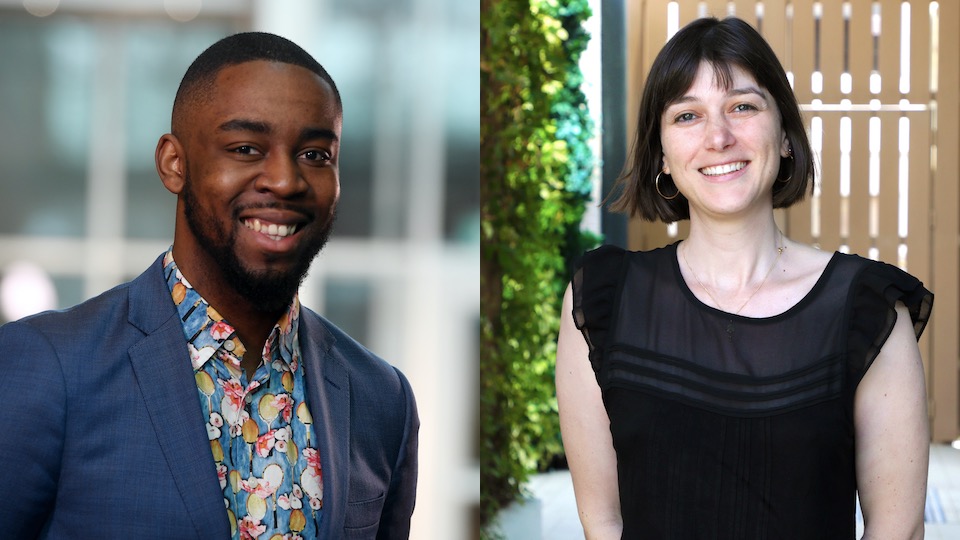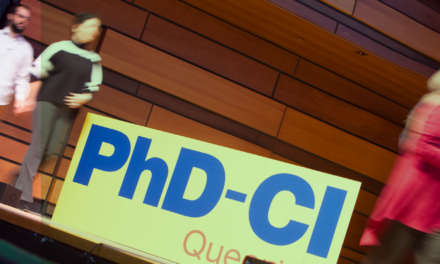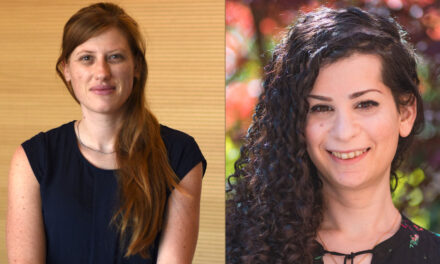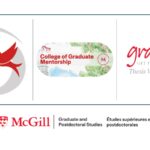2024 CAGS-ProQuest Distinguished Dissertation Award
Winner – Fine Arts, Humanities and Social Sciences Category
Dr. Tari Ajadi, Department of Political Science, Dalhousie University
Supervisor: Dr. Kristin Good, Associate Professor, Department of Political Science, Dalhousie University
Dissertation: Power in Presence: Understanding Black-Led Coalitions and Policy Change in Halifax, Nova Scotia
Dr. Tari Ajadi’s dissertation explores the tactical and discursive means that Black activists and community organizations in Halifax, Nova Scotia use to prompt policy change in public health and policing. Leveraging traditional archival research, semi-structured interviews, and an innovative autoethnographic methodology, Ajadi demonstrates how Black community organizers engaged in what he describes as “worldmaking,” a process that tapped in to a centuries-long lineage of resistance, institution-building, and advocacy to advance local understandings of Black liberation. In Power in Presence, Ajadi argues that the fight for political determination has created distinct African Nova Scotian institutions and organizations in Halifax, as well as a unique political identity that is particularly well-suited to building coalitions across racial, class, and other national identities. Ultimately, Ajadi’s dissertation seeks to address the erasure of communities of African descent within the study of Canadian politics, opting instead to engage with the extensive history of organizing within and between communities in Nova Scotia.
Dr. Ajadi has received numerous awards and fellowships in the pursuit of his dissertation research, including the Killam Predoctoral Scholarship, the Nova Scotia Research and Innovation Graduate Scholarship, and Queen’s University’s inaugural Pre-Doctoral Fellowship in Black Studies. He has conducted research for Statistics Canada and the Government of Newfoundland and Labrador, and has collaborated on several large grants. Ajadi has co-authored four articles in peer reviewed journals, and has contributed to numerous public-facing articles and interviews in local, regional, and national outlets. Dr. Tari Ajadi completed a BA at Quest University Canada, and an MA in Political Science at Dalhousie University. Dr. Ajadi is currently an Assistant Professor of Black Politics in the Department of Political Science at McGill University.
“The most important thing you can do as a student trying to finish your PhD, and particularly if you are a student subject to violence from the academic spaces you are in, is to find your people. Find your mentors, your collaborators, your friends. Find people who nourish you and help you grow. Find people who ground you and show you honest care. You deserve to be happy, and you deserve rest.” – Dr. Tari Ajadi, Assistant Professor of Political Science, McGill University
“[Dr.] Tari Ajadi’s dissertation is a ground-breaking and powerful contribution to the field of Political Science…This dissertation is original and thought-provoking, with the potential to shape future research on social movements, on public policy, and on ethnic and racial politics.” – External Examiner, Dr. Ethel Tungohan, Canada Research Chair in Migration Policy, Faculty of Liberal Arts and Professional Studies, York University
Winner – Engineering, Medical Sciences and Natural Sciences Category
Dr. Maëva Perez, Department of Biological Sciences, Université de Montréal
Supervisor: Dr. Bernard Angers, professeur émérite au département de sciences biologiques, Université de Montréal
Co-Supervisors: Dr. Kim Juniper, Professor, School of Earth and Ocean Sciences, University of Victoria; Dr. Robert Young, National Oceanography Center of Southampton, UK; Professor Peiyuan Qian, Chair Professor in Division of Life Science, Hong-Kong University of Science and Technology, Hong-Kong
Dissertation: Evolution, Connectivity and Resilience in Chemosynthetic-Based Ecosystems
Dr. Maëva Perez’s dissertation documents the ecological and evolutionary mechanisms responsible for maintaining the biodiversity of hydrothermal vents and hydrocarbon seeps in the abyssal depths of the Pacific Ocean. The biology of these unique and exceptional fauna is poorly understood by scientists, yet natural resource extraction threatens to disrupt or destroy their fragile ecosystems. Using a variety of innovative methodologies and cutting-edge genomic analyses to uncover the geographic organization and genetic diversity of the bacterial symbionts associated with keystone species, such as tubeworms and clams, Dr. Perez assessed the levels of resiliency and connectivity between habitats reshaping scientific perspectives on the priorities for preserving these environments. During her doctoral research, Dr. Perez also reconstructed the full genomes of two species of deep-sea worms and characterized their epigenetic landscape. Her work revealed new insights into how these animals may adapt to extreme environmental conditions, opening up a new field of research within deep-sea biology.
Dr. Perez has been awarded several prestigious research scholarships, including an Alexander Graham Bell Fellowship and an NSERC Postdoctoral Fellowship. Her research has been published in seven first-author articles and another eight as a co-author in high-impact journals such as Evolutionary Applications, Molecular Biology and Evolution, The ISME Journal, and Proceedings of the Royal Society. Dr. Perez has a distinguished record of excellence in teaching and mentorship, and serves as an associate editor of the Journal of Molecular Evolution.Dr. Perez completed a BSc in Biology at l’Université de Montréal, and an MSc in Earth and Ocean Sciences at the University of Victoria. Dr. Maëva Perez is currently a Research Associate at Hong Kong Baptist University.
“I have many advices for other PhD students but I think the three most important ones are:
1) Seize every opportunity and don’t be afraid to reach out to experts even if they have no prior connection to you or your supervisor. Building a diverse network of collaborators has been instrumental in both my research and my personal academic growth.
2) Do talk to family, friends, and strangers about your research. Doing so has helped me become a better science communicator, take a step back to put things into perspective, and stay motivated.
3) Teach. Engaging in teaching, tutoring, and mentoring during my graduate studies helped me combat the imposter syndrome as I realized I already had wealth of practical and transferable skills. It also helped me further develop these abilities.” – Dr. Maëva Perez
“Ce travail de thèse s’inscrit dans l’effort international de mieux comprendre les écosystèmes marins profonds afin de mieux les protéger face aux menaces d’exploitation, qu’elle soit biologique et biotechnologique ou minière….C’est dans ce cadre que s’inscrit parfaitement ce travail de thèse ce qui en soit, en fait un thèse d’importance notable.” – External Examiner, Dr. Marie-Anne Cambon Bonavita, Microbiology Researcher, National Centre for Scientific Research (CNRS), France
The CAGS-ProQuest Distinguished Dissertation Award recognizes Canadian doctoral dissertations that make unusually significant and original contributions, both to their respective academic communities and to Canadian society at large. The award was established in 1994 and is presented annually by CAGS, with sponsorship support provided by ProQuest. For the 2024 award season, eligible dissertations must have been completed and accepted by the graduate school between 1 January 2023 and 31 December 2023.
As expected, there were many extraordinary nominees for this award and the competition was extremely difficult to adjudicate. CAGS received sixteen submissions from across Canada in each category, and these were assessed by two independent committees each consisting of eight expert judges. Both committees were unanimous in their decision and commended the exemplary dissertations produced by Dr. Ajadi and Dr. Perez.
Dr. Ajadi and Dr. Perez will each receive a cash prize of $1,500, a certificate of recognition, and an invitation to present at the 63rd Annual CAGS Conference, to be held in Ottawa in November 2025. CAGS congratulates the winners for their tremendous accomplishments!











